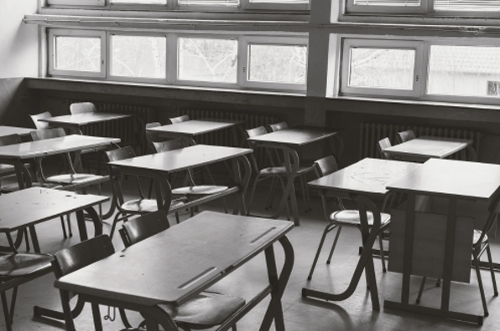
Chronic Absenteeism in Delaware Schools is Out of Control
By Dr. Tanya Hettler, Ph.D.
Center for Educational Excellence
June 20, 2023
Chronic absenteeism, defined based on a federal reporting system as missing 10% or more of school days throughout the school year, has surged in Delaware post COVID-19.
Prior to closures and remote learning in response to COVID-19, 13% of students were chronically absent. After Delaware schools re-opened full-time post COVID-19, the number of chronically absent students jumped to 25% in 2022 (see Graph 1.0).
|
Graph 1.0 |
 |
(Graph Source: https://reportcard.doe.k12.de.us/detail.html#displaypage?scope=state&district=0&school=0&id=395.)
But Why? First - Bad Habits from COVID-19 took Root and Flourished.
Delaware was one of the states with the heaviest restrictions in response to the COVID-19 virus. It was ranked 5th in the nation for the length of statewide stay-at-home orders at 68 days. The Delaware Covid-19 Timeline (below) shows the dates at which various decisions regarding school closures, hybrid learning and masking were made in Delaware.
|
|
(Timeline Sources: see end of article)
Delaware public schools were either completely closed or in hybrid learning for nearly a year and a half. Once allowed to return to school full-time, students had to wear masks for another seven months. Students' education was interrupted for over two years due to the government's poor management in response to COVID-19.
Like workers adjusting to not going to the office, students (and teachers) were getting into the habit of not going to school in person.
Second - Bad Behavior in Schools Steadily Rose as Discipline Policies Were Relaxed.
Increasing violence in schools is causing students and staff to be afraid to attend school (see Bring Traditional Discipline Back into Delaware Schools). The near complete replacing of the "traditional discipline" of suspensions and detentions with "restorative justice" techniques has led to little consequence for bad behavior and, of course, led to more bad behavior. The new discipline policy is supported by the National Education Association and adopted by the Delaware Department of Education.
Escalating violence in classrooms and hallways begets fear that leads to an increase in student absences.
Third - Many Issues Have Combined to lead to Teacher Shortages.
There is also a severe shortage of teachers in Delaware schools. According to Join Delaware Schools, there are hundreds of openings for teachers and support staff among Delaware schools. Delaware has one of the most restrictive teacher licensure systems in the country. This is not helping the state to fill these badly needed positions. Many classes in Delaware's public schools have had no teacher for much of the 2022-2023 school year, and often several classes worth of students are housed together in the auditorium or cafeteria during their class period. Not only are there not enough teachers, but there are also not enough substitutes.
In addition to students and parents avoiding schools, many teachers have left the field due to many of the same reasons that have influenced students.
Possible Solutions to Chronic Absenteeism.
- Loosen restrictions on teacher licensure in Delaware to allow more interested individuals to become teachers and accept credentials from applicants from other states.
- Delaware must blend "traditional stricter discipline" policies with "restorative justice" approaches to decrease misbehavior in schools.
- Get serious about absenteeism: take attendance and set appropriate penalties for chronic offenders and their families. Truancy is illegal.
NOTES: (Timeline Sources: https://governor.delaware.gov/wp-content/uploads/sites/24/2020/03/Letter-to-Schools-03.23.2020.pdf; https://news.delaware.gov/2020/04/24/delaware-schools-closed-through-academic-year/;https://news.delaware.gov/2020/08/04/governor-carney-announces-delaware-schools-may-open-in-hybrid-scenario/; https://news.delaware.gov/2020/12/03/message-from-governor-carney-on-covid-19/; https://news.delaware.gov/2021/01/05/governor-carney-dph-urge-schools-to-return-to-hybrid-learning-on-january-11/; https://wallethub.com/edu/states-coronavirus-restrictions/73818; https://governor.delaware.gov/health-soe/twenty-seventh-modification-state-of-emergency-declaration/; https://www.edweek.org/leadership/map-where-are-schools-closed/2020/07; https://whyy.org/articles/trepidation-excitement-and-masks-for-everyone-as-delaware-schools-reopen-for-in-person-learning/; https://news.delaware.gov/2022/02/28/delaware-school-mask-requirement-to-end-at-600-p-m-on-tuesday-march-1/.)
